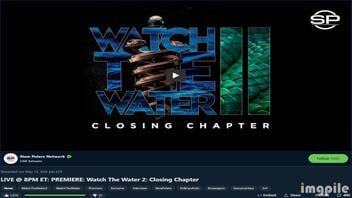How “Doing Your Own Research” Can Lead You To Dodgy Information And Conspiracy Theories

“Do your own research” has become a popular slogan among many conspiracy theorists in recent years. From flat earthers to anti-vaxxers, the phrase will often be issued as an attempted wake-up call to their doubters and detractors. Yet the idea of “research”, investigating something to learn more, seems like something that should limit the spread of misinformation. So what’s going on?
According to a new study, the problem may stem from the method used for such research – the common internet search engine. It’s an issue that’s been known about for some time. In some instances, there’s not a lot of information about a specific area that is part of or the focus of a conspiracy theory, and so internet-based research into this subject can lead a user into “data voids” that strengthen the associated conspiracy belief.
For instance, say there’s an article describing a so-called “engineered famine” in the US that supposedly was caused by planned COVID-19 lockdowns and vaccinations. The term “engineered famine” is not one that is likely to appear in reliable sources, so relying on this term will likely increase the chances of encountering misleading results.
“The question here was what happens when people encounter an article online, they’re not sure if it’s true or false, and so they go look for more information about it using a search engine,” Joshua Tucker, co-author and co-director of NYU’s Center for Social Media and Politics, told Vice’s Motherboard. “You see exactly this kind of suggestion in a lot of digital literacy guides.”
In their experiments, Tucker and colleagues wanted to explore how people verify fresh news. The first experiment started in late 2019. Around 3,000 participants from across the US assessed the accuracy of news articles that addressed topics such as the Trump impeachment proceedings, COVID-19 vaccinations, and climate change.
Each article had been published within the last 48 hours. Some of the articles came from reputable sources, while others were deliberately misleading. Half of the participants were asked to search online to verify the articles, while professional fact-checkers attached “true”, “false or misleading” or “could not determine” labels to the articles.
The results show that those asked to vet the articles through internet searches were 19 percent more likely to rate a false or misleading story as fact when compared to those who were not encouraged to do so.
Four subsequent experiments conducted between 2019 and 2021 revealed that around 18 percent of people who showed initial distrust in a story, rating it as “misleading”, later changed their designation of the story to fact after searching online, whereas only 6 percent ever changed their answer from true to false.
“Across five studies, we found that the act of [searching online to evaluate news] can increase belief in highly popular misinformation by measurable amounts,” the team explain in their paper.
They added: “Using digital trace data, we provide evidence consistent with the existence of data voids insofar as we find that, when individuals search online about misinformation, they are more likely to be exposed to lower-quality information than when individuals search about true news.”
It seems exposure matters more than previously thought. Those exposed to “low-quality information” are more likely to believe false or misleading news stories relative to those who are not.
“While practitioners and policymakers must balance the heterogeneous effects of [searching online to evaluate news] across article veracity and source quality, we think that the increase in belief in misinformation should be of particular importance when designing digital media literacy interventions that recommend search as a potential strategy.”
“The four most dangerous words are ‘do your own research’,” Chirag Shah, a professor of information science at the University of Washington who wasn’t involved in the studies told Motherboard. “It seems counterintuitive because I’m an educator and we encourage students to do this. The problem is people don’t know how to do this.”
The study is published in the journal Nature.
This article has been archived for your research. The original version from IFLScience can be found here.


